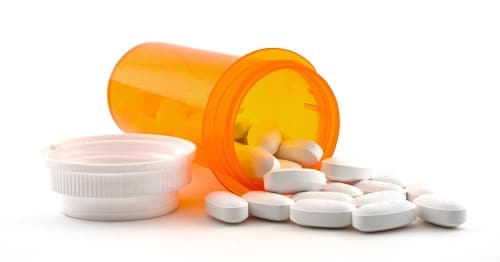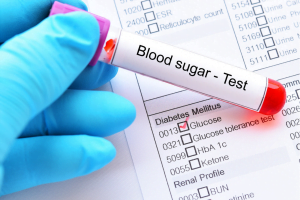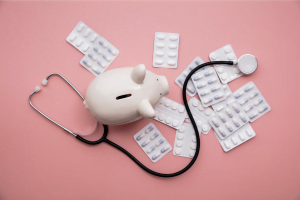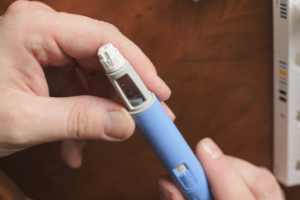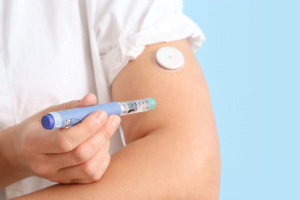What is Glyburide (Diabeta, Glibenclamide, Micronase)?
Glyburide Uses and Dosage. Glyburide is a popular oral diabetic medication. This generic medicine is available under the brand names Diabeta, Glibenclamide, and Micronase.
Glyburide is only made for treating type 2 diabetes and is not suitable for type 1 diabetes. Its safety is unknown to patients younger than 18 years old.
How does it work?
Like other anti-diabetes medications, Glyburide functions by controlling blood glucose levels in individuals with type 2 diabetes. However, you should use it with a proper diet and regular exercise. Combining it with other diabetes medications can also be an option, provided you have a prescription from a qualified doctor.
- Also read: Glyburide and Weight Gain
- Also read: Glyburide and Weight Loss
Glyburide is part of a drug class called sulfonylureas. This drug group works by stimulating the release of the body’s natural insulin production and lowering blood sugar. If you use this medicine efficiently, it will prevent the development of diabetes-related complications. These complications may include blindness, kidney damage, sexual dysfunction, and nerve problems.
Glyburide Uses and Dosage
Like other anti-diabetes medications, your healthcare professional will assess some health factors before writing your prescription with Glyburide. These factors are:
- Age and weight
- Underlying medical conditions
- Medical history
- Previous medications or other forms of medicines you are taking currently
The dosage below only applies to adults 18 years old and above. As mentioned earlier, its efficiency is not established for children below 18.
The usual dose for adults:
- Take 2.5 mg to 5 mg of Glyburide once per day for the initial doses.
- For the maintenance dose, take 1.25 mg to 20 mg of Glyburide as a single dose or in divided amounts.
- The maximum dosage for Glyburide is 20 mg per day.
Glyburide comes in the form of a tablet. It is available in different strengths, such as 1.25 mg, 2.5 mg, and 5 mg. For its micronized version, its strengths include 1.5 mg, 3 mg, 6 mg and 4.5 mg. Your healthcare professional will list the most suitable strength for your body. Again, it would be best to have a proper diet and regular exercise when consuming this medication.
- Also read: Glyburide (Diabeta) Side Effects
How to take Glyburide?
Take Glyburide orally and follow the instructions provided by your healthcare professional. Additionally, follow the directions in your prescriptions.
Glyburide is usually administered during breakfast. You may take this without food; however, taking it with food is ideal for controlling your blood glucose and avoiding stomachache. It is a must to monitor your blood sugar after taking Glyburide.
- Also read: Glyburide and Alcohol
- Also read: Glyburide and Hypoglycemia
What must you do if you miss a dose? Follow these steps:
- If you forget one dose and it is already time for your next, skip the missed dose and take the following medication.
- Avoid consuming two doses at one time.
- Don’t adjust your dosage unless your healthcare professional tells you to.
- Set the alarm to remind you of your prescription schedule.
One of the side effects of Glyburide is hypoglycemia or low blood sugar. This condition usually occurs when you take a drug that reverses high blood sugar levels. Its main symptoms include hunger, mild to severe headache, irritability, nausea, vomiting, sweating, dizziness, irregular heartbeat, shakiness, and feelings of anxiety.
Your healthcare professional may prescribe you a glucagon emergency injection kit together with Glyburide. This medication kit helps in severe cases of hypoglycemia. Make sure to know how to use this injection kit during emergencies. If you do not have one, ask your doctor for alternate equipment that can serve the same purpose.
Drug Interactions
Glyburide can interact with other medicines. That includes the medications you are taking currently and even the drugs you had in your previous medical conditions. Besides making your Glyburide treatment less efficient, it also paves the way for health complications to occur in your body.
Don’t shy away from talking about your previous health problems with your healthcare professional. Doing so will prevent unnecessary drug interactions.
- Also read: Glyburide Vs Glipizide
- Also read: Glyburide Vs Metformin
- Also read: Glimepiride Vs. Glyburide
Warnings and Precautions
Do not use Glyburide if you have/had:
- Diabetic ketoacidosis
- Treatment with Tracleer (medicine to lower blood pressure in the lungs)
- Allergy to Glyburide and its components. Note that hypersensitivity can be harmful to your health.
Consider and understand the following precautions before using Glyburide:
- Tell your healthcare professional if you have a history of hemolytic anemia, enzyme deficiency, a nerve disorder, liver or kidney disease, or allergy to sulfa drugs.
- If you are breastfeeding, this medicine may be prohibited for you. Talk with your healthcare professional first before using Glyburide.
- If you are pregnant, ask for specific instructions from your healthcare professional. Note that controlling diabetes is essential during pregnancy.
Always follow your prescription label. Doing so will ensure treatment success with Glyburide. Prevent diabetes-related complications by taking this medication according to the instructions provided to you.
Check Glyburide prices at canadianinsulin.com!
Disclaimer: Please note that the contents of this community article are strictly for informational purposes and should not be considered as medical advice. This article, and other community articles, are not written or reviewed for medical validity by Canadian Insulin or its staff. All views and opinions expressed by the contributing authors are not endorsed by Canadian Insulin. Always consult a medical professional for medical advice, diagnosis, and treatment.

